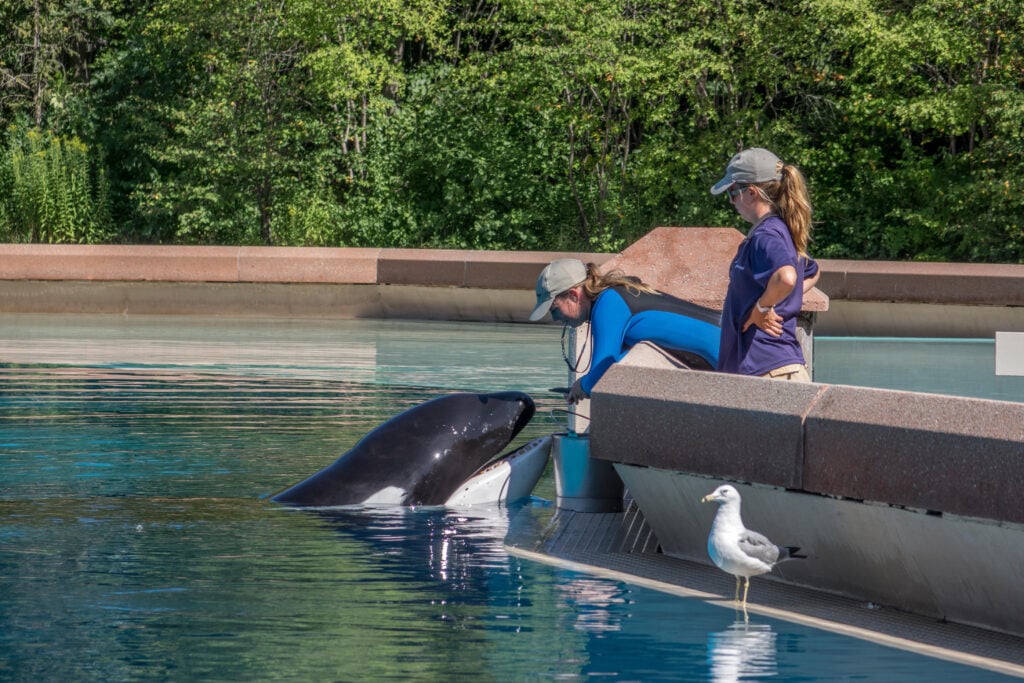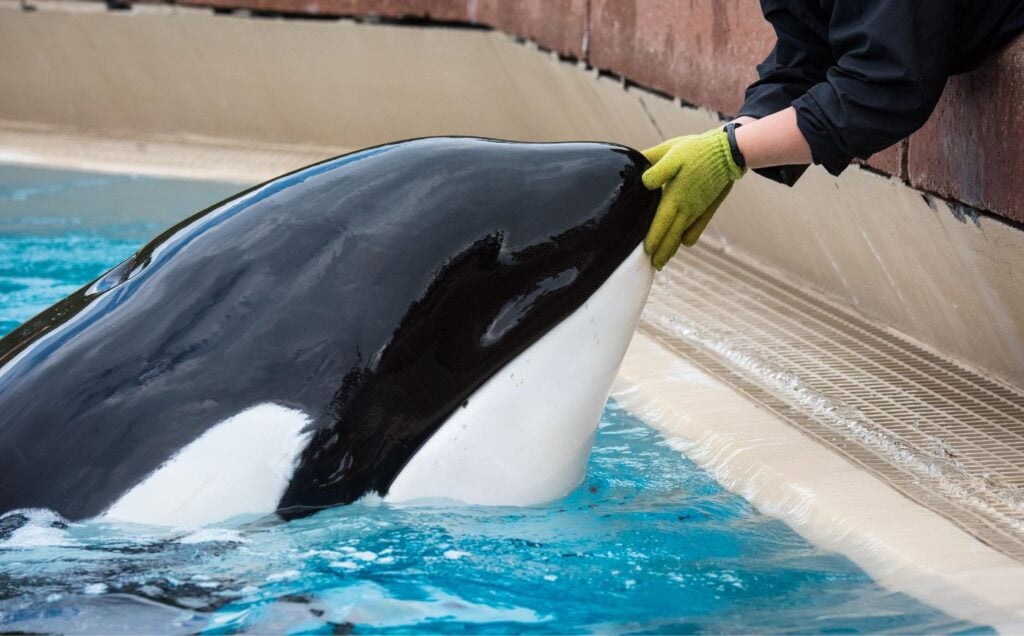Kiska, Canada’s last captive orca, has died in her concrete tank enclosure in Marineland, a zoo at Niagara Falls, Canada.
Aged 47, she had been in captivity for around 44 years, having been captured in Icelandic waters in 1979. Her death was officially announced on March 9, 2023, though no cause has been declared yet.
The Ontario park where she was kept said Kiska’s health had noticeably declined in recent weeks. Her death followed apparent attempts by marine mammal experts to make her as comfortable as possible before she passed away.
Marineland has released a statement saying that everyone will “mourn her loss.” However, animal activists are calling for an investigation into Kiska’s captivity. Leading the fight for transparency is Canadian animal welfare non-profit Animal Justice. It has echoed previous demands for legal charges to be filed against MarineLand.
“Our lawyers are renewing calls for charges against Marineland over the cruel and illegal living conditions that the facility forced Kiska to endure,” Camille Labchuk, executive director of Animal Justice said in a statement.
“Orcas are incredibly social animals, but Kiska had no one by her side since 2011, and suffered from agonizing loneliness as well as a lack of space and mental stimulation in her small barren tank. Under federal and provincial laws, it’s illegal to cause animals suffering and distress, which includes psychological distress stemming from boredom and isolation.”

Save Kiska the orca
Animal Justice previously launched legal challenges against the marine park in 2021 and 2022. They came after the organization received video footage of Kiska behaving in ways not natural for orcas. These included floating aimlessly and hurling herself against the sides of her small enclosure.
It is assumed that Kiska suffered incredible mental distress and tragedy during her time at Marineland. The loss of five calves, all before they reached seven years of age, led animal rights organization PETA to call her the “world’s loneliest orca.”
If Kiska had not died, she could have soon been released to an ocean sanctuary. The Whale Sanctuary Project is in the process of building Canada’s first ethical relocation sanctuary in Nova Scotia. Had she survived long enough, Kiska could have been transferred to a roomy ocean cove and given 24/7 specialist care.
Canada bans whale captivity
Kiska’s death marks the official end of whale captivity in Canada.
The country passed a landmark legal bill banning the captivity of whales and dolphins in 2019. This was also extended into a blanket ban on importing or breeding the animals. Prior to this, a 2015 bill made it an offense to breed and acquire captive whales in Ontario, though those already in Marineland’s possession were exempt from the ruling.






